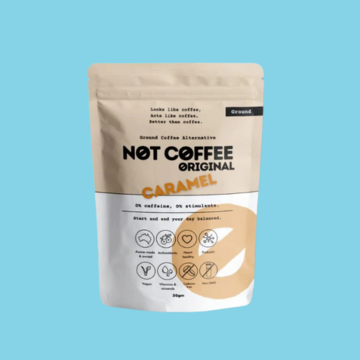On the Greek island of Ikaria, people suffer 80 percent less dementia, 50 percent less heart disease and 20 percent less cancer than the rest of the world. Marcus Pearce considers why.
Known as “the island where people forget to die”, Ikaria first came to prominence when National Geographic journalist, Dan Beuttner and his team, discovered the island as a Blue Zone. There are five Blue Zones in the world – small pockets on earth where the population enjoys longer lifespans than the average. Okinawa, Sardinia, Nicoya in Costa Rica and Loma Linda in California all share with Ikaria this prestigious title.
Naturally, researchers, health enthusiasts, and the wider community want to know how and why these Blue Zones have become that way. I myself, having hosted the longevity podcast 100 Not Out for over five years, am fascinated with why some people live great, long lives, and some don’t. In 2016, I went to find out for myself, joined by my 100 Not Out co-host, naturopath, nutritionist and media health guru Dr. Damian Kristof, and 12 longevity enthusiasts from Australia and New Zealand. Words don’t accurately capture what we experienced on this trip, but what became abundantly clear is that Ikarians have a strong sense of purpose (or reason for living), move regularly, socialise with their friends and family religiously and have an incredibly strong faith. Naturally enough though, we were fascinated by the food. For 10 straight days, we wined and dined on the exquisite Ikarian version of the Mediterranean Diet.
Here’s just a snapshot of what makes Ikaria’s version of the Mediterranean extra special.
Bone Broth – The Ikarians consume generous amounts of goat broth before their panigiris
(a local festival that can attract up to 2000 people). Broth is consumed to line the stomach,
allowing people to spend longer at the festival eating, drinking and dancing with their friends and family. Whilst goat is the feast animal of Ikaria, you may choose broth of cow, chicken, fish and so on. Animal broths are known to help protect joints, improve gut health and immune system function, aid in detoxification and skin maintenance, and improve your metabolism.
Coffee – Like many longevity cultures, coffee is a staple in the diet. Greek coffee is served black, and it typically has a foam top (the more foam the better!). Research results on coffee intake has shown longer lifespans, reduced risk of heart disease, some cancer, liver disease, and diabetes.
Rosemary – When I wasn’t drinking Greek coffee with breakfast in Ikaria, I was enjoying the
local rosemary tea. Some researchers believe this herb is the reason why the Ikarians live longer. I’m not into one “fountain of youth”, but if a tea was shown to improve digestion, cognitive function, prevent cancer, improve skin conditions, reduce inflammation (and ease the pain associated with it), reduce anxiety, improve liver function and boost hair health – would you drink it? I’m sold.
Vitamin D – There is no public transport in Ikaria, and cars are seen as optional rather than a
necessity. So Ikarians walk a lot, consequently, they get bucket-loads of vitamin D. You don’t need to live on a Greek island to get adequate vitamin D; you just need to spend time outdoors and supplement where necessary. Vitamin D3 helps all major functions of the body, notably immune function, bone, and teeth health and provides resistance against major disease.
Olive Oil – Most, if not all Ikarian families grow their own grapes and olives. Olive oil is best
consumed from close to the source and always buy olive oil in dark bottles (or tins). If you are in Australia, you are wise to consume Australian olive oil. The benefits are again in line with the reduced dementia, heart disease and cancer stats on Ikaria. Olive oil is proven to reduce inflammation, may help to prevent strokes, heart disease, cancer, diabetes and Alzheimer’s, plus is a great anti-bacterial agent. I do as the Ikarians do, and drizzle a generous amount of this “superfood” on breakfast, lunch, and dinner.
Probiotics in wine – Ikarians take great pride in consuming high-quality, home-grown and harvested wine. We visited Afianes winery in Ikaria where Homer wrote parts of The Odyssey whilst enjoying the local fermented grape juice. Ikarian wine has no artificial preservatives, is full of antioxidants and up to 11 probiotic strains and is enjoyed on a daily basis. Whilst many health professionals are wary to advocate alcohol for health, there is a strong body of evidence to suggest the social and responsible consumption of good quality red wine creates a healthy and life-giving response in the body.
NOTE: The Ikarians have some very strong cultural boundaries around alcohol. Check yourself on whether you drink like an Ikarian!
Ikaria’s rules around alcohol
In Ikaria, alcohol is seen as a great social lubricant, so being tipsy is encouraged but being
drunk is highly frowned upon. Here’s how the Ikarians do it.
- Water in the wine (a little or a lot, depending on how much you’ve previously had)
- Eat whilst you drink (allows you to hold your alcohol better, socialise with friends and
dance for longer) - Drink with others and not alone (talking makes you drink more slowly)
- When at a party, dance like no one is watching (don’t just sit down all night and eat and
drink).

